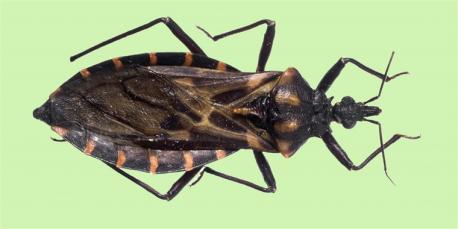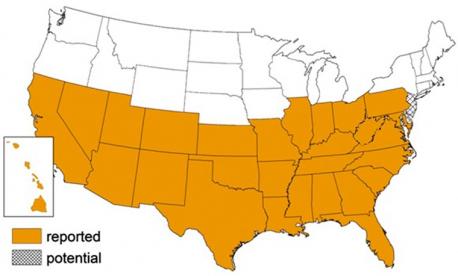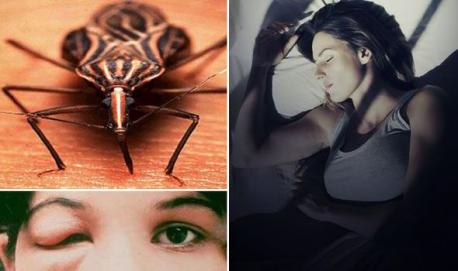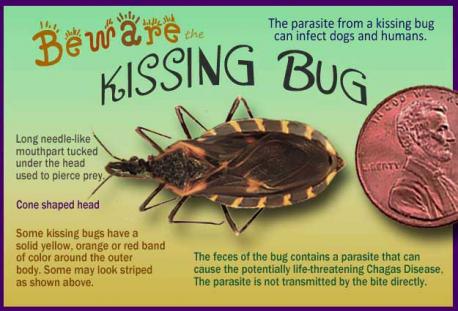Results: The Kissing Bug
Published on 04/28/2019
Deadly 'KISSING PARASITE' that sneaks in beds and bites your FACE at night is invading. Source: Today. Survey submitted by MSRCMS.

QUESTIONS
GO to COMMENTS
Comments
1.
1.
Bloodsucking insects known as "kissing bugs," because of their tendency to bite people around the mouth, are spreading across the country after working their way north from South America. The Centers for Disease Control and Prevention confirmed last week that a girl in Delaware was bitten by one of the critters, which are formally known as triatomine bugs. Are you familiar with this story?

Yes
20%
348 votes
No
80%
1352 votes
2.
2.
The case was reported in July 2018 when a Delaware family requested help from state health and agriculture officials to identify the insect that bit the girl on the face as she watched television in her bedroom. The bugs can spread a parasite that causes Chagas' disease through its feces. The disease can be spread when the bug "poops on or near a person while it is feeding on (their) blood, usually when the person is sleeping," according to the CDC. Transmission occurs "when poop is accidentally rubbed into the bite wound or into a mucous membrane (example, the eye or mouth), and the parasite enters the body." Do you live in an area where the kissing bugs are spreading?

Yes
29%
499 votes
No
44%
742 votes
Undecided
14%
232 votes
Not Applicable
13%
227 votes
3.
3.
In the early phase of Chagas' disease, a person may have no symptoms or mild ones, including fever, fatigue, body aches, headache, rash, loss of appetite, diarrhea and vomiting. Since the symptoms are similar to those of other illnesses, many people do not know they may have a parasitic infection, the CDC said. The girl who was bitten in 2018 did not suffer any health effects, according to the CDC. Have you ever been bitten by a kissing bug?

Yes
3%
48 votes
No
80%
1356 votes
Not Applicable
17%
296 votes
4.
4.
The recent spread of triatomine bugs is not the first time the insects have traveled north. In 2014, the kissing bugs showed up in the southern half of the U.S. The 2018 case in Delaware has been the northernmost case so far. There are 11 species of triatomine bugs across the country. Adult kissing bugs are generally larger than a penny and may have an orange-striped band around the edge of their bodies. The CDC advises against touching or squashing a suspected triatomine bug. Instead, the agency suggests placing it in a container, and then filling it with rubbing alcohol or freezing it. The bug should then be taken to a local extension service, health department or university laboratory for identification. Are you familiar with these facts?

Yes
8%
138 votes
No
92%
1562 votes
COMMENTS

